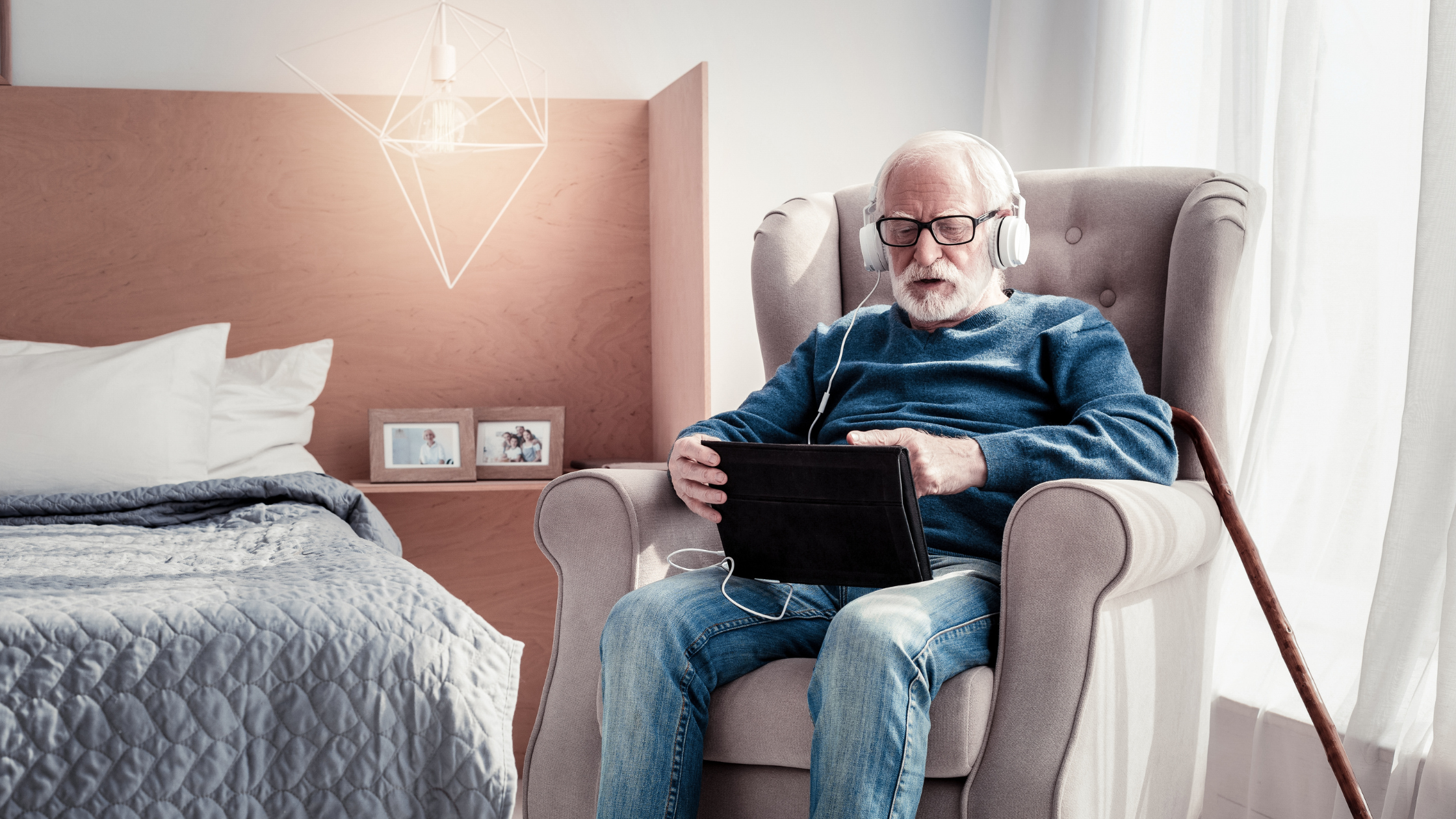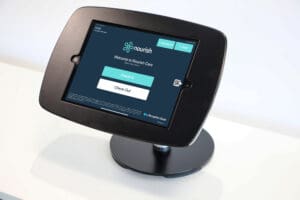Using music is a simple and yet incredibly powerful and effective tool which can be easily deployed and offers numerous benefits to those living in care services.
The power of music
Regardless of a diagnosis, listening to music releases endorphins which can reduce anxiety, depression and agitation and also improves attention and concentration, cognition, memory, speech and non-verbal communication skills. Music can be a great distraction and distress reducer.
Music can be an easy way to get conversations started to increase social interaction. Finding the same love for an artist or genre can help start friendships and reduce social isolation. The beauty of music is that it allows individuals to bond over childhood memories of the songs that were sung to them by their parents and the songs they’ve gone on to sing to their own children and grandchildren.
Music in Speech and Language Therapy
Music is a form of therapy regularly used by Speech and Language Therapists. For those who struggle with aphasia, a type of therapy called Melodic Intonation Therapy is sometimes used in sessions. Aphasia is when a person has difficulties with language or speech after experiencing an injury, such as a stroke, that has damaged the left side of the brain. Melodic Intonation Therapy engages the undamaged right side of the brain that is capable of language to improve speech and helps to improve language by using intonation.
Music and Dementia
For those living with dementia, music can be an extremely powerful tool.
Musical memory is stored in a different part of the brain and is a form of implicit memory. Implicit memory is part of our long-term memory, where skills are stored and remembered unconsciously. Explicit memory is the long-term memory where we have to consciously recall information such as a maths equation or a fact. For example, if you were to be asked to type a sentence, you would likely be able to type it without thinking but if you were asked to name five letters in the top row of a qwerty keyboard, it would be a harder task. The former comes under implicit memory while the latter is explicit memory.
Because music falls into the implicit memory category and the part of the brain that stores musical memories isn’t affected until much later on in the disease, the ability to remember music often stays long after other aspects. Music has the ability to assist those with dementia in connecting with memories of the past but also helps to express feelings and ideas, encourage physical exercise, increase social interaction and even reduce distress.
End of life
It is widely believed that hearing is the last sense to go at the end of life. Music has the ability to provide peace and comfort not only to the person at the end of their life but their family members. Studies show that music has the power to reduce anxiety, agitation and pain for the person at the end of their life, their family and the staff providing care.
To ensure that end of life care continues to be person-centred, every Nourish care plan has a section on end of life to find out and record the person’s wishes and ensure the end of their life is as peaceful as possible.
Resources
There are many resources available to enable listening to music in care services from Music 4 Dementia radio to classic radios or headphones for those who are hard of hearing.
Using Nourish as your digital social care records platform means you are able to record any and all activities that take place with the people you support. You can record the people you support’s favourite songs and genre in Nourish. The Nourish app also includes a picture taking feature so you can visually document the activity as it happens. The Family Portal also allows family members of the people you are supporting to see what their loved one has been up to and what they’ve enjoyed doing.






